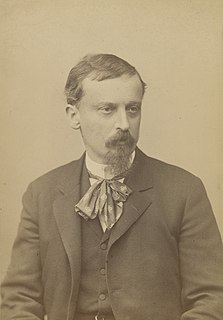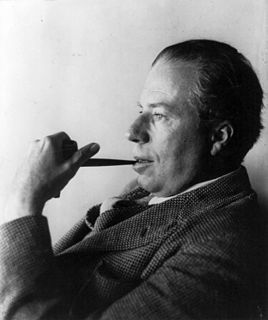A Quote by John Locke
He that makes use of another's fancy or necessity to sell ribbons or cloth dearer to him than to another man at the same time, cheats him.
Related Quotes
What higher praise can we bestow on any one than to say of him that he harbors another's prejudices with a hospitality so cordial as to give him, for the time, the sympathy next best to, if indeed it be not edification in, charity itself. For what disturbs more and distracts mankind than the uncivil manners that cleave man from man?
One time or another we all face adversity's chilling wind. One man flees from it, and like an unresisting kite falls to the ground. Another yields no retreating inch, and the wind that would destroy him lifts him as readily to the heights. We are not measured by the trials we meet, only by those we overcome.
The minister should preach as if he felt that although the congregation own the church, and have bought the pews, they have not bought him. His soul is worth no more than any other man's, but it is all he has, and he cannot be expected to sell it for a salary. The terms are by no means equal. If a parishioner does not like the preaching, he can go elsewhere and get another pew, but the preacher cannot get another soul.
A rationalist, as I use the word, is a man who attempts to reach decisions by argument and perhaps, in certain cases, by compromise, rather than by violence. He is a man who would rather be unsuccessful in convincing another man by argument than successful in crushing him by force, by intimidation and threats, or even by persuasive propaganda.
Yet I was a fool to fancy for a moment that she valued Edgar Linton's attachment more than mine -- If he love with all the powers of his puny being, he couldn't love as much in eighty years, as I could in a day. And Catherine has a heart as deep as I have; the sea could be as readily contained in that horse-trough, as her whole affection be monopolized by him -- Tush! He is scarcely a degree dearer to her than her dog, or her horse -- It is not in him to be loved like me, how can she love in him what he has not?









































